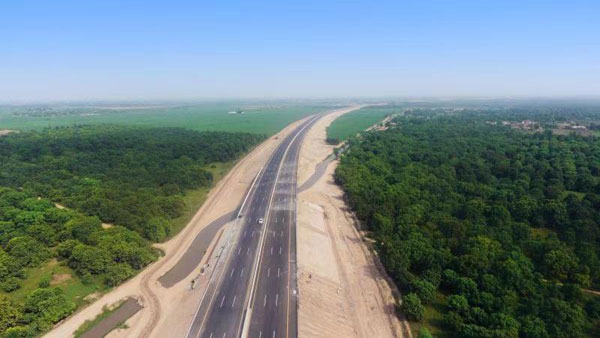The constitution of Ghana empowers every citizen to acquire and own land anywhere in Ghana. However, the ownership right of a citizen in land is not absolute. The interest of the public overrides the interest of an individual in land ownership. Whenever land is required for a purpose that is in the interest of the public, the interest of the public overrides every other private interest in land. In such instances, the state would always exercise its power of eminent domain to compulsorily acquire a land that is required for the benefit of the general public. Compulsory acquisition must always be accompanied by compensation of persons whose properties are affected. Without appropriate compensation, compulsory acquisition would be rendered null.
This article provides a general overview of a recent compulsory acquisition in Ghana – the Tema-Aflao road expansion and its implications for various land owners within the road corridor earmarked for acquisition.
The Tema-Aflao road is a major road in Ghana which connects to other West African cities such as Abidjan and Lagos. In recent times, the road has been characterized by congestion. In view of this, the road is to be expanded from two lanes to six lanes. The expansion of this road has become extremely important to enhance traffic flows from Accra to other parts of the country and other cities within the ECOWAS region. This will further promote the ECOWAS agenda of economic integration and free movement within the region.
Clearly, the interest of the public overrides private interests of land owners within the areas earmarked for the road expansion. However, this superimposes an obligation on the government of Ghana to ensure that everyone whose property is affected by the acquisition is adequately compensated. In most instances, affected persons are paid sums of money that are equivalent to the value of the property taken in the compulsory acquisition. This sum of money is assessed by professional valuers and estate surveyors. The acquisition would have diverse implications for various categories of persons – the encroacher and the legal or lawful occupant of the land.

The Encroacher:
In an instance where the existing road in question had made provision for road reservations for future expansion during the time of construction, owners of structures located in the reserved portions of the road are encroachers. Such people in most instances are unable to show any proof of title/ownership such as stamped indentures or land title certificates. On the surface of it, such people are not entitled to compensation in most cases. However, things could turn out differently, depending on the source of funding for the project. For a funding organization such as the World Bank, it is obligatory for acquiring authorities to pay compensation for structures destroyed in the acquisition but not for the land taken. This is because the World Bank is dedicated to eradicating extreme poverty as one of its SDGs.
The Legal Landowner
The main group of people who are given priority in instances regarding compulsory acquisition are bona fide property owners. These categories of persons are people who can provide evidence of title/ownership (land documentation such as an indenture, a site plan, a title certificate, a will, among others).
It is therefore important that owners of land perfect title to cover them from unexpected instances of compulsory acquisition.
For more insights on compulsory acquisition, contact us via info@anlpropertyconsult.com
Author: Makafui Kuffo








